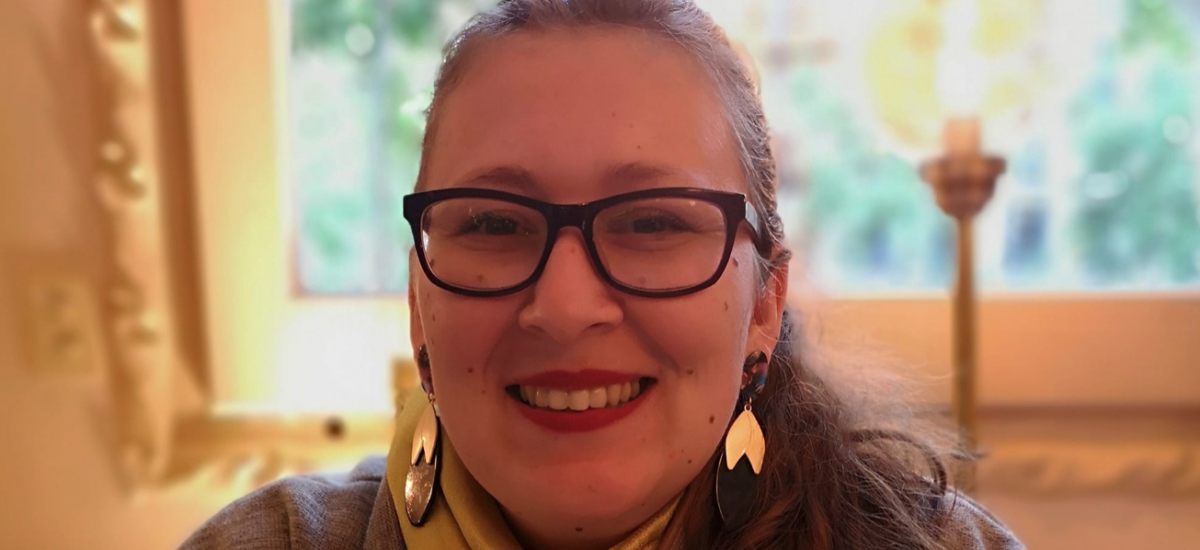
Arzu Güneysu Özgür – postdoc fellow designing technologies and robot-mediated games for healthcare
Arzu Guneysu Ozgur is a Postdoctoral researcher at Digital Futures. Arzu got a PhD in Robotics on “Designing Gamified Activities with Haptic-Enabled Tangible Robots for Therapy and Assistance” from EPFL, in 2021. Her research interests include various topics in Human-Robot Interaction, Adaptive Robot-Enhanced Therapy, Iterative Design, Participatory Design, Neurodevelopmental Disorders, Gamified Therapeutic Technologies, Healthy Aging, Intergenerational Practices for Elderly and Children, and Special Education. Her main supervisor is Iolanda Leite, Associate professor, Department of Robotics, Perception and Learning at KTH, and her Co-supervisor is Ali Reza Majlesi, Associate Professor, Department of Education at Stockholm University.
Hi Arzu, describe your role(s) as a Postdoc Fellow at Digital Futures and why you applied for this fellowship mobility program?
– I am mainly designing technologies and robot-mediated games for healthcare, and this topic requires interdisciplinary effort. Currently, I am working at the Division of Robotics Perception and Learning in EECS and collaborating closely with SU as well as with the Department of Biomedical Engineering and Health Systems. I applied for the Digital Futures fellowship since it gives me the opportunity to do research with experts from different departments, universities as well as societal partners. Importantly, it also allows me to conduct my own research project with much more freedom.
The title of your postdoc project is Designing Gamified Robot-Enhanced Interventions for Children with Neurodevelopmental Difficulties – tell us a bit about it? Why is this research important?
– In my previous research, I had the chance to work with or observe the therapies of multiple patient groups going through cognitive or physical rehabilitation from 3 to 77 years old. Neurodevelopmental disorder (NDD) is an umbrella term defining a group of conditions that are attributed to impairment of the brain and-or neuromuscular system including attention-deficit/hyperactivity disorder (ADHD), autism spectrum disorder (ASD), cerebral palsy (CP), development coordination disorder (DCD), etc.
From an early age, these difficulties result in different degrees of emotional, physical, social, academic as well as economic consequences for individuals, and in turn families, and eventually society. I believe that with intelligent technologies and gamification we can provide effective interventions and practices where we design inclusive, adaptive, and engaging practices with and for neurodivergent children.
Have you already some results from your work? How could this result be used?
– We have multiple dimensions in this research line. In one line we plan to co-design the activities with the input of children, their families, and domain experts by moving away from the view of seeing them as only participants toward the view of including them as co-designers, instead. I believe that this perspective can increase the acceptability of the new technologies and make them more adaptive to be integrated into multiple environments such as homes, schools, and therapy centers. In the second line, we plan to focus more on social perspective with inclusive practices where we want to design multiuser activities to promote collaborative activities for neurodivergent children to play and learn together with neurotypical children or with their families.
Currently, we are testing our robot-mediated multiplayer games with healthy adults and getting feedback on different interplayer interaction modalities, these results will be useful for designing adaptive games. There are families of children with ADHD and ASD who are interested in participating in our design process and we are preparing ethical approvals for our child participants to start working with them.
Your research interests include various topics in Human-Robot Interaction, Neurodevelopmental Disorders and Gamified Therapeutic Technologies – why did you decide to focus on these topics?
– Actually, as opposed to many roboticists I do not dream of a world where we have various intelligent and interactive robots changing our lives, talking with us, and behaving like humans. I see the technologies as tools and this moves my priority from the technology to the problem. That is why I have a special direction in my research focusing on the problem rather than the robots.
Although I started my robotics journey since I was soo impressed that with a code snippet you can tangibly see the output of that code through the motion or behavior of the robot, I decided to focus on robotics for healthcare since there is a huge potential to improve several aspects of healthcare through the technology and gamification.Through intelligent behavior, feedback and monitoring we can improve the quality and continuation of interventions and eventually improve the quality of life of patients or the elderly, and help domain professionals. What inspires me more now is to utilize human-robot interaction to improve human-human interaction and co-design with patients/children/the elderly to reflect their own strengths and their creativity into design process.
Finally, tell us a little bit about yourself!
– I really like doing research on healthcare technologies and collaborating, brainstorming, and writing papers with other domain experts. I enjoy being in Sweden where I meet with many national and international open-minded researchers. I took the Ph.D. supervision course offered by KTH and I am very excited to continue to do research in this environment with these colleagues since I observed that the mindset of teaching and supervision is evolving in a positive sense where the focus is on building healthy supervisor-student relationships and lab environments and helping students to become independent researchers with good research ethics.
Apart from research and teaching, I just got my PADI advanced open water certificate and dived 39 times up until now and saw many turtles, sting rays, groupers, and impressive swarms of fishes 😊 I also passed A1 level in Swedish and learned to say ja ha in different ways.


